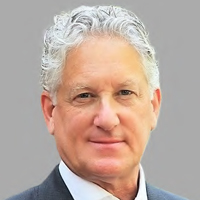Global Sustainability Imperatives: Roles of Business Stakeholders and Governments

With the commencement of COP30 in Belém, Brazil just weeks away, it is critical for observers to focus now on formulating a systemic scorecard from which rigorous judgments can be made about what was and what was not-accomplished.
It has become customary for most assessments and discussions in the press or elsewhere about outcomes of COP meetings to focus on pledges by governments to prevent the globe’s further warming.
Invariably, our public officials promise at COPs to undertake broadly stated actions and commit themselves to abide by certain principles to foster mitigation of carbon dioxide, methane, and other greenhouse gas emissions; facilitate societies’ abilities to adapt to the harmful impacts from rising temperatures; and deploy financial assistance from the wealthiest countries to ameliorate the damages climate change engenders on the poorest states.
But businesses and other private sector entities from around the world are also in attendance at COPs. And at an increasingly significant scale. There is some news coverage of their presence. But the media attention paid to the corporate commitments intended to abate the warming of the planet is far more muted than that of the public sector.
the media attention paid to the corporate commitments intended to abate the warming of the planet is far more muted than that of the public sector.
This is ironic. On three levels.
First, it is the operations of firms, far more than of governments, that are the sources of greenhouse gas emissions.
Second, the pledges proffered by business tend to be far more concrete and robust than those made by governments.
And third, these commitments, if fulfilled, could well be game-changers in how certain firms around the world take more seriously the need to incorporate sustainability into their day-to-day operations in the various sectors and geographic markets in which they function.
The “if fulfilled” qualification is critical.
Two examples from previous COPS are illustrative.
First, In COP26, Eleven large automobile manufacturers pledged to halt sales of internal combustion vehicles in their largest markets by 2035, and on a global basis by 2040.
Secondly, more than 450 financial firms spanning across 45 countries committed to provide $130 trillion for investments that entail net zero emissions by the year 2030.
How should one interpret the motivation behind these business pledges? In my view, they illustrate that corporates’ successful attainment of ESG and sustainability goals requires a fundamental understanding that ESG and sustainability are not just matters of engaging in risk-mitigation but also of pursuing growth maximization. In a word, corporates, investors, and their advisors must think of ESG and sustainability initiatives as opening new doors of opportunities for business growth.
Of course, a cynical interpretation of such pledges is that they simply reflect businesses’ eagerness to promote their “sustainability brand.” After all, businesses’ COP commitments are made in a voluntary manner; they are not compelled by regulation, although they could well be. In contrast, a government’s follow-through on its COP commitments to restrict the burning of coal would normally be enshrined in regulation.
Corporates must think of sustainability initiatives as opportunities for growth.
So, why shouldn’t a business make a COP commitment if it sees it as a “freebie”? Of course, one should not rule out such motives.
But unlike the diffused, infrequent, and possibly sporadic process by which governments can be held accountable for implementation of their COP commitments - largely through the electoral process (that is, at least for democracies) companies, especially publicly held firms, may well face a raft of stakeholders that can serve a checks-and-balances function: Think of their shareholders/potential investors; consumers; workers/unions; competitors; suppliers; distributors; and the press.
Today, when businesses take on specific, measurable high-profile, public positions about the types of products they will make, the services they will provide, the nature and location of the production processes, inputs, and supply chains they will utilize, and the working conditions for their employees, the “market for feedback” can be both immediate and potent.
While such impacts certainly differ across sectors, firm size, nationality, geographic spread, and corporate ownership form, the contemporary scorecard for business conduct bears little resemblance to your grandfather’s often toothless tactic of “naming and shaming”.

If anything, the increasing imperative for firms to make COP pledges has focused attention on the need for C-suites to hire Chief Sustainability Officers (CSOs) and to give them the significant remits if a business is serious about its commitments to incorporate sustainability throughout its operations.
Similarly, a few corporate boards have either established or are considering establishing Sustainability Committees and/or are bringing on new directors who can give more than just lip service to businesses’ commitments to sustainability on a company-wide basis.
Of course, notwithstanding how businesses are affected by the extent of adherence to their public proclamations to operate sustainably, in most countries, they are also subject to direct external environmental and economic regulation administered by governments. Such regimes exact more intense discipline on businesses than self regulation.
However, whether such rules are effectively designed and administered by governments to achieve outcomes consistent with the overall sustainability objectives of society - encompassing businesses, workers, and consumers is very much an open question.
Author

Dr. Harry G. Broadman
He is a Director on several corporate boards and is an NACD Board Leadership Fellow and Faculty Member of NACD’s Board Advisory Practice. He has served as PwC’s Chief Economist; as a faculty member at Harvard and Johns Hopkins Universities; Managing Director at Albright Capital Management Private Equity; Chief of Staff of the White House Council of Economic Advisers; US Assistant Trade Representative; Chief Economist of the US Senate Committee on Homeland Security and Governmental Affairs; and as the World Bank’s Lead for China’s Enterprise Restructuring Operations; Russia’s Structural Reform Program; and Economic Advisor for the African Continent.
Owned by: Institute of Directors, India
Disclaimer: The opinions expressed in the articles/ stories are the personal opinions of the author. IOD/ Editor is not responsible for the accuracy, completeness, suitability, or validity of any information in those articles. The information, facts or opinions expressed in the articles/ speeches do not reflect the views of IOD/ Editor and IOD/ Editor does not assume any responsibility or liability for the same.

 Quick Links
Quick Links
 Connect us
Connect us




 Back to Home
Back to Home































